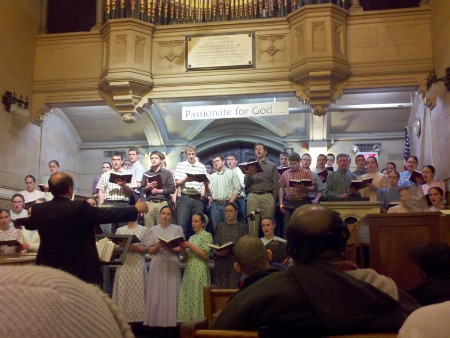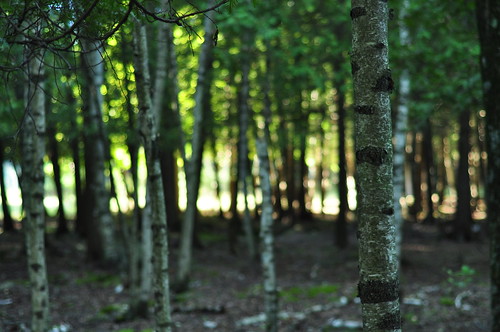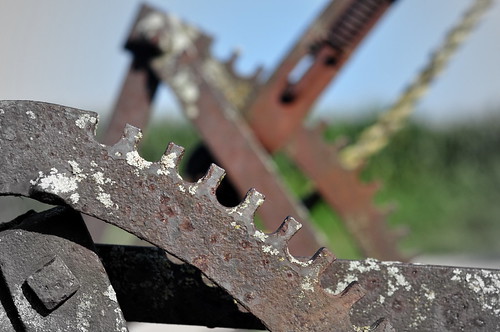Hey y’all,
Jonathan Wilson-Hartgrove just wrote an article today, called “Nonviolence for White People” and invites your feedback: http://www.mennoworld.org/blog/2013/1/10/nonviolence-white-people/
This is a great discussion for young Anabaptist radicals, particularly white folks.
ST
January 10, 2013
activism, Allyhood, New Monasticism, Nonviolence, Power, Privilege, Race
Read more >
Several months ago I drafted a post on Occupy Wall Street suggesting that people interested in thinking through issues of race and gender (re)turn to Adrienne Rich as a wise source. We so often forget those who have gone before us, outside a fairly limited range, and I thought posting a few quotations from one of Rich’s essays might provoke thought and also encourage folks to dig out college anthologies, hunt down books in the library, or do a little web-searching.
I didn’t post the little piece because I wanted it to be Just Right. Then I got busy.
And now Adrienne Rich has died, and I am reminded again of how much she has to teach us.
(more…)
CindyW
March 30, 2012
activism, antiracism, Books, Current Events, Economics, Gender, Group Identity, Media, Poetry, Politics, Privilege, Race, Sexism, Stories, Wealth, Writing
Read more >
Warning: This blog post contains some graphic images.
MLK day is day when we appropiately focus a lot on the Reverend Dr. Martin Luther King Jr.’s Christianity and the prophetic witness of the movement he led against racism and white supremacy.
We sometimes forget that most of the white people who Dr. King challenged were Christians. I think it is as important for me as a white person to understand the faith of the segregationists as it is to understand Dr. King’s faith. This is one way I can do my work and understand whiteness in the work of anti-racism.
Let’s start by taking one step back and looking at slaveholder Christianity. Specifically, the faith of white Christians who owned African-American slaves here in the United States. (more…)
TimN
January 15, 2012
Church, Privilege, Race, Theology
Read more >
This article was originally published in the October 2011 issue of Hospitality, the newspaper of the Open Door Community in Atlanta, Georgia
Last year was not my best year. Looking back I understand much of my dissatisfaction, but I would be lying if I said I have it all figured out, and I never expect to fully understand it. The biggest thing I came to realize last year was that I felt stagnant, in relationships, in my studies, with God. Wrapped up in my routine and my self-pity and my selfishness, toward the middle of first semester, I realized that I needed to do something really different from my usual activity for the summer. Â I wanted to immerse myself in a different community and a different lifestyle. Â I wanted people who would challenge my faith and the comfortable life I live. And I wanted to serve, to completely break off from my normal routine and just focus on serving others and looking for the face of God in those around me. I was lucky enough to get all of this and more. I came away from my SIP experience teeming with the love, knowledge of injustice, and will for justice that abounds in the community I found, but I also came away with the faces of our friends from the street imprinted in my mind and with the heartbreak of less than three months’ time living among Atlanta’s disinherited. The only other time I had more than passed through Atlanta in my life was in 2003 when I spent a week there for the Mennonite youth convention. The theme of that year’s convention was “God’s table-ya’ll come.” Now, 8 years later and after my second stay in Atlanta, I think I have finally learned what that phrase really means. (more…)
MaraW
December 2, 2011
Community, Privilege, Race, Sexism
Read more >

This month Malcom Gladwell had an article in the New Yorker looking at the legacy of Steve Jobs. His central thesis is that Jobs’ gift was not originality, but rather tweaking: the ability to take the inventions of others and refine and improve them dramatically. Gladwell points out that the iPod came out 5 years after the first digital music players and the iPhone more than a decade after the first smart phones hit the market.
Gladwell is building on the work of economists Ralf Meisenzahl and Joel Mokyr who used this lens to look at the industrial revolution in Britain. For example, they point out the importance of the many engineers who improved on Samuel Crompton’s original invention of the spinning mule. These “tweakers” dramatically improving its productivity through minor changes.
Likewise, Gladwell says, “Jobs’ sensibility was editorial, not inventive. His gift lay in taking what was in front of him–the tablet with stylus–and ruthlessly refining it.” Gladwell makes his point with many episodes from Walter Isaacson’s biography of Jobs. Job’s particular way of tweaking made him very difficult to get along with, even as he was dying of cancer:
At one point, the pulmonologist tried to put a mask over his face when he was deeply sedated… Jobs ripped it off and mumbled that he hated the design and refused to wear it. Though barely able to speak, he ordered them to bring five different options for the mask and he would pick a design he liked. . . . He also hated the oxygen monitor they put on his finger. He told them it was ugly and too complex.
(more…)
TimN
November 27, 2011
Anabaptism, History, Mennonite Church USA, Peace & Peacemaking, Power, Privilege
Read more >
Amtrak crosses the county carrying overnight passengers, strangers who engage each other as little or as much as they want. I overhear the social analysis of foreigners, business owners, union workers, environmentalists, activists and Amish. Wide seats, scenic cars, and café tables host a unique social atmosphere, literally a meeting in between places with a cross-section of the world.
Last night I returned from New York State via Amtrak, following a weekend of faith-based social justice fellowship with the Word and World mentoring program. I heard three young men relate their weekend experience of Occupy Wall Street in New York City. Computer speakers played Colbert’s speech at the White House Press Dinner. Elderly voices discussed political debates in Iowa, “Those politicians are all liars” … “Well that should not attract votes the way they argue.”
Tim spotted the chance for a window into the Occupy Wall Street (OWS) movement from its source in New York City. We invited the activists to the café car for an interview. Eli Fender (23), from Seattle joined the camp for two weeks. Robert Smith (20) and Riley O’Neil (20) both originally from Rogers Park in Chicago (small world) both visited the camp over the weekend.
Charletta: Tell us about the movement’s shape. What are some of the tools that are important at OWS?
Eli: There’s the people’s microphone, which a lot of people know about. There’s also working groups such as the facilitation working group who guides the General assembly. In democracy you worry about where power starts welling up. So I joined the facilitation group meeting.
(more…)
CharlettaE
October 24, 2011
activism, antiracism, communication, Corporations, Current Events, Economics, Environment, Leadership, Nonviolence, poverty, Power, Privilege, Wealth
Read more >

There’s a building boom on the Bowery these days. It’s been happening for a while, but the last couple years have witnessed an escalation in development, turning the neighborhood into a hip destination point.
Fifty years ago the Bowery was the largest skid row in the world. There were gin joints and flophouses on every block. That’s all gone now, thanks to the forces of gentrification. In their place are condos, art galleries and upscale eateries. Only one skid-row relic remains: the Bowery Mission.
Some of my earliest memories are of sitting behind the Mission’s pulpit in the 1960s, looking onto a sea of expectant faces while my father preached. In retrospect I realize the men behind those faces were awaiting the sermon’s conclusion so they could get their grub. (more…)
CharlieK
August 22, 2011
Anabaptism, Biographical, Change, Church, City, Civilization, Consumerism, culture, Current Events, Economics, Education, Ethics, Evangelism, Exclusion, God, Group Identity, History, Interfaith, Love, Mennonite Church USA, Mental health, Nonviolence, philosophy, Polarization, poverty, Power, Privilege, Race, Schism, Sex, Spiritual Life, Stewardship, Stories, The Bible, Theology, Tolerance, Tradition, Urban Ministry, Wealth
Read more >

“Community”, “Radical Discipleship”, “Prophetic Witness”: An urgent and self-giving Christianity has taken hold of the imaginations of a new generation of the faithful. Group houses of sincere young folks earnestly desiring to live for Christ and serve the poor are springing up like daisies after a summer rain.
It is humbling to witness the movement of the Spirit in their work. Yet it is mournfully apparent that the language, aims, and means of our Christian communities are often defined by a narrow contingent of the movement or what might be the movement if our communities were accountable to anti-oppression work and in solidarity with those under the foot of kyriarchy in its many forms. In fact, the voices of women, queer people, people of color, those of immigrant or non-North American status, the economically disadvantaged, and the disabled are often secondary to the voices of celebrated white heterosexual North American men. And while certainly, our God’s cause is the cause of the poor, there is something troubling about our communities’ rhetoric and movement “to the margins”: it is a dangerous sense of entitlement that gives some of us the notion to obtain property and create ministries and services- often while lacking training or outside accountability. Many community houses have been started without the members having first developed a meaningful relationship with the community leaders and projects already underway, without having been invited to come nor having undertaken a serious analysis of the kinds of unjustly gained power that make some service providers and others receivers of services.
Yes, our God’s cause is the cause of the poor and the inspiration to give one’s life for God’s people- especially the most obviously vulnerable among us- is right and good. But the desire to give one’s life must not overcome a commitment to give that gift with a holy indifference that might lead one another way. (I am reminded of priests on foreign mission returning home, having been told that it was in disarming U.S. imperialism that they could best care for their beloved congregations abroad.) And while the lack of representation- and accountability- in our movements is casually acknowledged by many (“Sure, we’re mostly white, middle class, and male”), acknowledging it without committing to changing it perpetuates the unexamined privilege that underlies so many of our communities. It feeds the supremacy of whiteness, maleness, heterosexuality and class privilege in our most compelling “radical” North American Christian experiments and recreates the dynamics of oppression we name as sin.
(more…)
EdaUD
January 27, 2011
Community, LGBTQ, liberation theology, Privilege, Race, Sexism
Read more >

“As a church have we forgotten how to go to the lengths of cutting open a roof and lowering our disabled friend in through the ceiling just so they could meet Jesus?”
– Julie Clawson, from “Americans with Disabilities and the Church”, a July 2010 entry on her blog, One Hand Clapping
In church circles we often plaster phrases like “everyone is welcome” and “come as you are” across lawn marquees and in Sunday morning bulletins. But how often do we back that language up with authentic, Christlike inclusion?
More specifically, what are some ways we fail to remove barriers and obstacles to worship for our brothers and sisters who bring disabilities (or different cultural gender experiences, role, or sexual orientation) with them into the sanctuary on Sunday morning?
(more…)
BrianP
December 5, 2010
disabilities, Exclusion, Mental health, Privilege, Tolerance, UncategorizedADNet, Christine Guth, disabilities, Envision Acccess, Jean Vanier, Julie Clawson, Laurelville, Mark Van Steenwyk, Paul Leichty, Scottdale Mennonite Church, The Table Coffee Shop, William Gaventa
Read more >

by Tim Nafziger and Mark Van Steenwyk
In July, Mennonite Church USA executive director Ervin Stutzman blogged some reflections on his visit with Mennonites from various Native groups in Ashland, Montana. He clearly describes the way white settlers’ sense of manifest destiny led to the clearing of the Cheyenne and other groups from their land. He acknowledges the deep trauma these communities have experience. He shares the effect this had on him personally. In other words, he knows that oppression is bad and that he as part of the dominant group, is complicit in it.
Stutzman concludes the article with a commitment to “walk alongside our Native American brothers and sisters as they seek God’s way for their future.” What does this mean, exactly? What does it look like to take the the tragic knowledge of history of oppression and the analysis of how this oppression continues and do something to make a difference?
(more…)
TimN
September 27, 2010
Allyhood, antiracism, Indigenous, liberation theology, Power, Privilege, Race
Read more >
Author’s Note: Just to give some context; I’m a mission worker with Eastern Mennonite Missions in La Ceiba, Honduras. I in conjunction with the local Mennonite congregation, work in Los Laureles, a community built in and around the municipal garbage dump. If you’d like to read or see more about our work there you can visit my blog here.
So here’s an example of injustice, greed, political corruption and a general screwing of the poor and powerless and it just fills me with raw anger. Stay with me here because some of this gets tedious but I think it’s necessary for understanding the problem we’re facing. Very often I get asked about how the people here in the garbage dump survive, what do they do for a living? Here’s the long version. Many men work as day laborers in construction, a few as night watchmen and quite a large number buy green bananas that come in from the plantations of Tocoa and then sell them throughout the La Ceiba area on the back of rusting-out pickup trucks. However, the largest form of income by far here in the community is connected in some way or other to the garbage collection process. No one scavenges directly off the dump anymore, those days ended almost 10 years ago when the city privatized the dump had it covered over, converted into a landfill and barred the residents from intruding onto the new dumping area.
The garbage though has continued to be a major and vital part of the economy here in the community, much to the chagrin of both the mayor’s office and the private waste treatment company (I’ll explain why in a bit). The company itself is not responsible for the collection of the garbage, they simply control what passes through their gates at the far end of the community and are then responsible for the treatment of the waste that is constantly being interred. The collection then, falls to the mayor and his cronies in the form of contracts; the mayor awards collection contracts to the people he owes political favors and those people in turn use a portion of that money to buy “garbage trucks” (converted, massive and pitifully old delivery trucks), hire truck drivers and a few assistants who actually collect the garbage. The drivers and assistants, usually 2-3 per truck, are also joined by scavengers who make a living by sorting through the garbage as it travels en route to the dump. They look for plastic bottles, metal scraps, car batteries and anything else that might be of worth (I’m talking everything from bed frames to clothing to half-used perfume bottles), sort it into separate bags and then upon arrival to the community and just before the truck passes through the gates into the no-entry zone of the new landfill, the scavengers disembark and sell their findings to a group of families who have made their living buying these items, sorting them, weighing them and then re-selling them to the local recycling company or interested parties, whichever the case may be. These people are perhaps the most resilient and hard-scrabble of the whole collection lot for they live and die by what the trucks bring in and what price the recyclers set; they work long hours, Monday through Saturday in the baking sun and torrential rain bent over and sifting through plastics for next to nothing in terms of compensation. In fact most of the workers at the collection and weighing site make no money at all, this is their “family farm”, it’s how the family survives, so what little money comes in is given directly to mother and father.
(more…)
MatthewK
June 18, 2010
activism, Politics, Power, Privilege
Read more >
For the last few months I haven’t been as active on Young Anabaptist Radicals as usual. Aside from my normal work doing web design and work for Christian Peacemaker Teams, I took a class on Anabaptist History and Theology. I’ve also been part of organizing a gathering in conjunction with the US Social Forum in Detroit. It’s called Becoming Undone: a gathering of Christians drawn to Anabaptism and the continuing work of Undoing Opressions. Follow the link for more details. There’s still room if you register now!

I’ve also been very involved in a movement called Spark Renewal.
For many years, I’ve been fascinated (and disturbed) by the way that institutions tend to drift away from their original mission and towards self-preservation. I started writing about it in back in 2004, but the decision by Goshen College to start playing the anthem got me thinking about it a lot more. Around the same time friends started sharing their concerns and frustrations with the “Joining Together” campaign to build a new Mennonite Church office building on the campus of Associated Mennonite Biblical Seminaries. (more…)
TimN
June 7, 2010
Mennonite Church USA, Power, Privilege
Read more >
Things are picking up over at Feetwashing and Four Square, our sister blog started by Nick Miller Kauffman (nicolas here on YAR). I’d particularly commend to you the recent post Anabaptist Fierce by Katie Shaw Thompson. Here’s an excerpt on the relationship between some theories of nonviolence and white privilege:
Bob cited a weak (or rather antithetical) version of non-violent theory he often hears from seminarians as symptomatic of the problem. Concerning Jesus’ Sermon on the Mount commandment to “love your enemies” these seminarians want to claim that we have no enemies, which as Bob cited is not really nonviolent theory at all.
Only someone at the top of the food chain, with all kinds of privilege, could claim that we have no enemies. (more…)
TimN
April 23, 2010
Anabaptism, Nonviolence, Privilege, Race, Young Folks
Read more >
As part of the conversation that often occurred in response to Mennonites in Northern Ghana, who were asking me “what does it mean to be Mennonite?” I would quote a snippet from Menno’s document. (I mean, only sometimes, when they asked specifically about Simons, because “church founders” are a BIG deal there). But the language was such that I always found myself changing the words. These folks loved Jesus, and they weren’t necessarily asking me about what Jesus had to say about discipleship and prayer, but they wanted to know what Menno had to say. They had only relative familiarity with British English and most are distanced from the written word. I wonder if I translated the following accurately? I wonder if it matters? How would you translate/summarize this part of Menno Simon’s Why I Do Not Cease Teaching and Writing (1539)
“True evangelical faith is of such a nature that it cannot lie dormant, but manifests itself in all righteousness and works of love; it dies unto the flesh and blood; it destroys all forbidden lusts and desires; it seeks and serves and fears God; (more…)
ST
February 15, 2010
Anabaptism, Change, Clothing, communication, Community, culture, Death, Discipleship, Education, Ethics, Evangelism, Global Church, God, Group Identity, History, Interpretation, Language, liberation theology, Nonviolence, Peace & Peacemaking, philosophy, Poetry, Polemics, Politics, poverty, Power, Prayer, Privilege, Stewardship, The Bible, Theology, Tolerance, Tradition, Wealth, Writing, Young Folks
Read more >
New Heaven, New Earth: Anarchism and Christianity Beyond Empire
August 14 & 15, 2009
Location
Caritas Village
2509 Harvard Avenue,
Memphis, TN 38112
This year’s anarchism and Christianity conference, hosted by Jesus Radicals, will look squarely at the economic and ecological crisis facing the globe, and point to signs of hope for creativity, for alternative living, for radical sharing, for faithfulness, for a new way of being. We are living in a karios moment that will either break us or compel us to finally strive for a new, sane way of life. The question we face at this pivotal time is not if our empires will fall apart, but when they will fall–and how will we face it? We hope you will join the conversation. (more…)
ST
June 25, 2009
activism, Anabaptism, Awesome Stuff, Change, Church, City, Civilization, Clothing, communication, Community, Conscientious Objection, Consumerism, Contemplation, culture, Current Events, Discipleship, Economics, Education, Emerging Church, End Times, Environment, Ethics, Evangelism, Faith, Family, Gender, Global Church, God, Group Identity, Healthcare, History, Immigration, Indigenous, Interfaith, International Relations, Leadership, liberation theology, Mental health, New Monasticism, Nonviolence, Peace & Peacemaking, philosophy, Polarization, Police, poverty, Power, Prayer, Privilege, Race, Roman Catholic, Spiritual Life, Stewardship, Stories, submergent, Television, The Bible, Theology, Tolerance, Tradition, Travel, Urban Ministry, war, Wealth, Writing, Young Folks
Read more >





